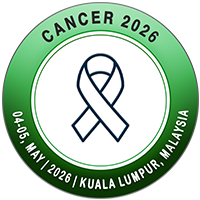
Arpit Gite
Jalgaon Cancer Care and Radiation Centre, IndiaPresentation Title:
Role of total neoadjuvant therapy in sphincter preservation in locally advanced rectal cancer: A case series
Abstract
Purpose: We have evaluated role Total Neoadjuvant Therapy in patients with Locally Advanced Rectal cancer by giving Chemoradiotherapy followed by consolidation chemotherapy (CRT-CNCT) and after that strategy of wait and watch.
Methods: In this prosepective case series, we evaluated results of three locally advanced Rectal cancer , two cases Stage II (cT3N0) and one case Stage III ( cT4aN2).All three patients growth were 4-6 cm from anal verge. We have treated with Chemoradiotherapy to dose of 45Gy/25 Fractions to elective nodal regions(Inguinal node in anal canal Involvement)and Primary and mesorectum (Phase I) followed by 14.4Gy/8 Fractions to Primary and Mesorectum(Phase II) to a total dose of 59.4Gy/33 Fractions with concurrent chemotherapy Tab Capecitabine 825mg/m2 PO BD with Radiation therapy. After 6 weeks of completion of Chemoradiotherapy, advised six cycles of consolidative chemotherapy ,CAPEOX regimen ,Oxaliplatin 130mg/m2 on day 1 and Capecitabine 1000mg/m2 PO BD on days 1-14 repeated on 21 day cycle for total of six cycles. Primary endpoint is Disease free survival (DFS) , Secondary end point are adverse events related to chemoradiotherapy. Radiation toxicity assessed by RTOG criteria and chemotherapy toxicity assessed by Common Terminology Criteria for Adverse Events (CTCAE) Version 5.0.
Results: After 6 weeks completion of Chemoradiotherapy, we did PET-CT of all three patients,all three patients had clinical complete response, and advised 6 cycles consolidative chemotherapy. After completion of consolidative chemotherapy, again did PET-CT and sigmoidoscopy, all three patients had complete response on PET-CT and no lesion on sigmoidoscopy and kept all three patients on wait and watch.2 patients had Grade 2 skin toxicities ,1 patient had Grade 1 skin toxicity .2 patients had Grade 2 lower GI toxicities,1 patients had Grade lower GI toxicity ,both according to RTOG criteria. 3 patients had Grade 2 diarrhea due to capecitabine, 1 patient had Grade 1 thrombocytopenia due to oxaliplatin assessed by Common Terminology Criteria for Adverse Events (CTCAE) Version 5.0.
Conclusion: Sphincter Preservation is possible with this regimen in those who don’t want to opt for surgery or in case of low lying rectal cancer.
Biography
To be updated soon.


